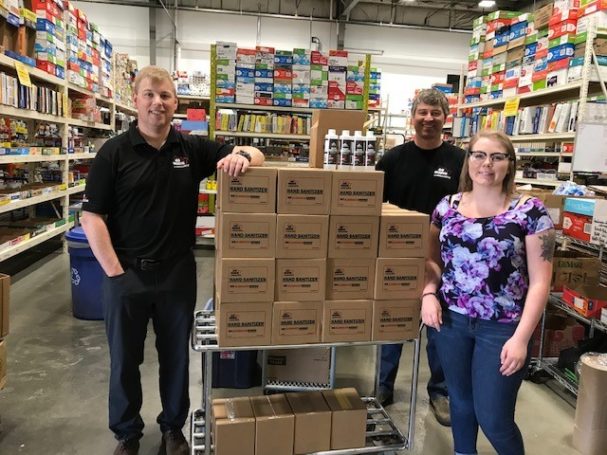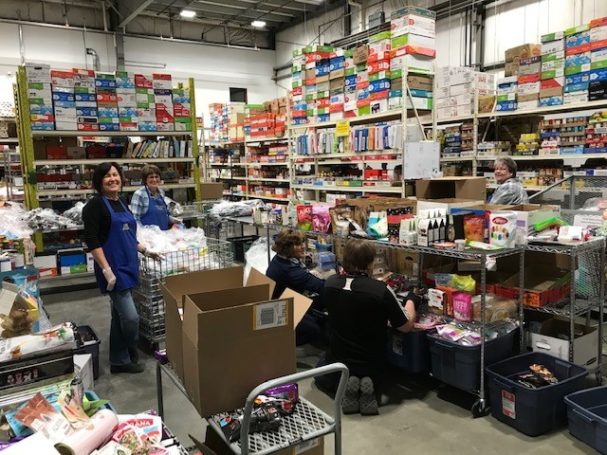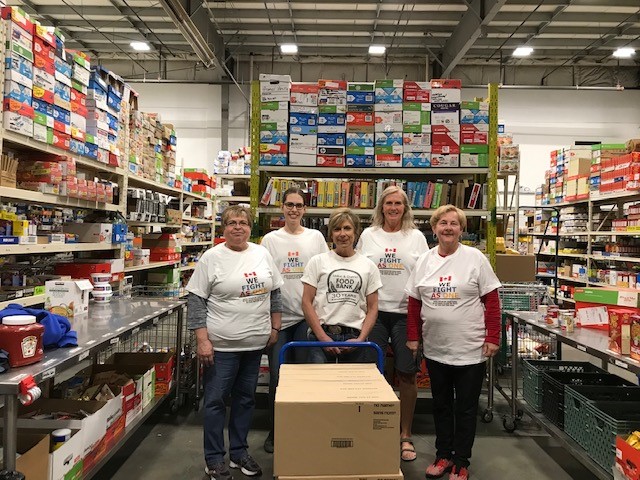Just before the pandemic hit, the Leduc & District Food Bank had about three weeks’ worth of food on its warehouse shelves. “And we were okay with that,” says LDFB executive director Gert Reynar, “because we would be going into a food drive in July.”
The LDFB serves seven municipalities in Leduc County, with a total population of about 85,000.
With COVID-19, Reynar saw their requests for hampers “skyrocket.” Numbers rose from 117 hampers distributed in 2019, to 191 in March 2020.

Like all food banks, the LDFB relies heavily on food donations and volunteers. When panic buying set in at the beginning of the pandemic, grocery retailers had very little to donate. And with events and other means of food drives cancelled, community donations drastically dropped as well.
Furthermore, the immediate household hoarding, coupled with disruptions in the food supply, had Reynar scrambling to buy food from the largest to the smallest grocery retailers that she could find in her area.
Hampers were cut in half to ensure that there was enough food to distribute. “We’re still dealing with supply chain issues,” Reynar explains.
“In any crisis, we get hit hard. There’s a lack of donations and a lack of food, but there’s a simultaneous increase in demand. We just can’t operate if we don’t have food.”
The $10,000 grant from Edmonton Community Foundation’s (ECF) COVID-19 Rapid Response Fund allowed Reynar to start purchasing food right away as it was disappearing from the shelves. (The LDFB distributes between 25,000 to 40,000 pounds of food per month, with a value of $1.2M of food per year.)

To keep the staff and volunteers safe, client intake is done over the phone, email, or text. With a specific pick-up time, clients arrive, text, and then the hampers are placed outside for pick up. Keeping staff and volunteers safe is a huge priority. “If something happens to one of us, we all go down,” says Reynar.
For those who cannot retrieve their hampers in person, the LCFB has arranged with the Leduc Assisted Transport Services drivers who have volunteered their time.
The grant came in as a lifeline where procedures and procurement issues were being dealt with. “The email came back from the ECF within 72 hours, if not less. As an agency, it was really important to see that people understand what we do, the importance of what we do and that there are people there, ready to support us.”
Learn more about ECF’s response to the COVID-19 pandemic here.
